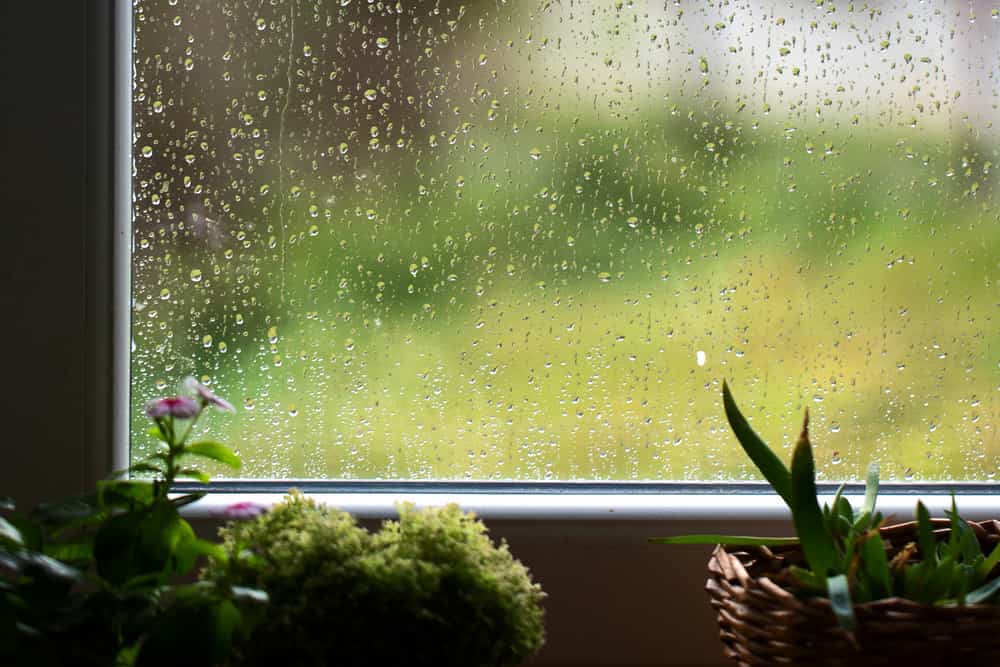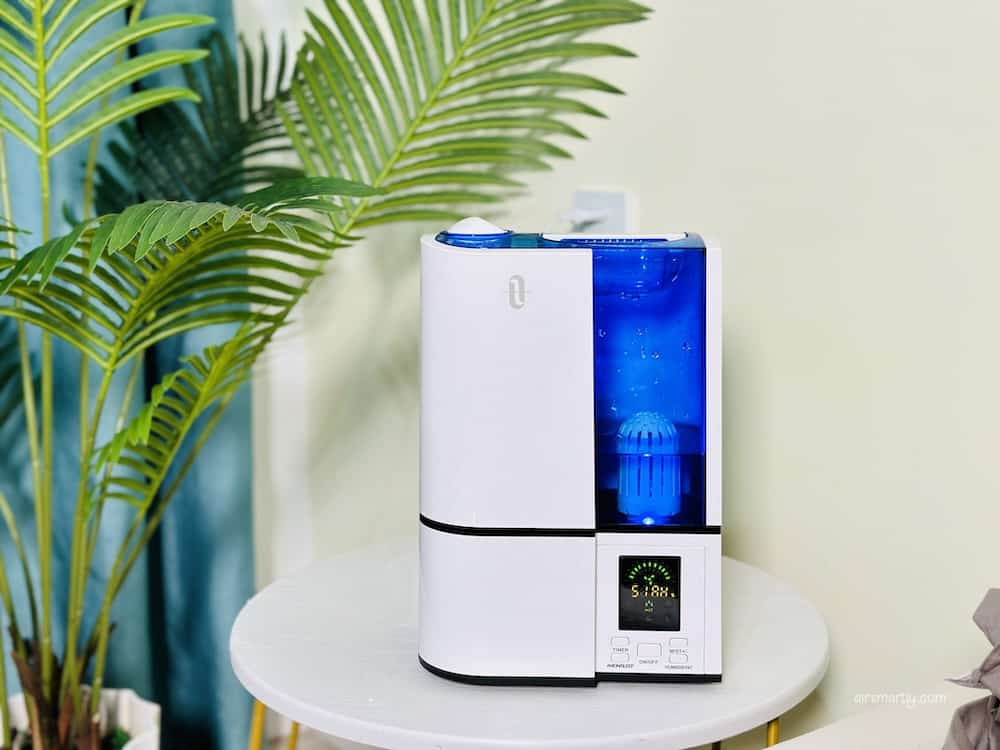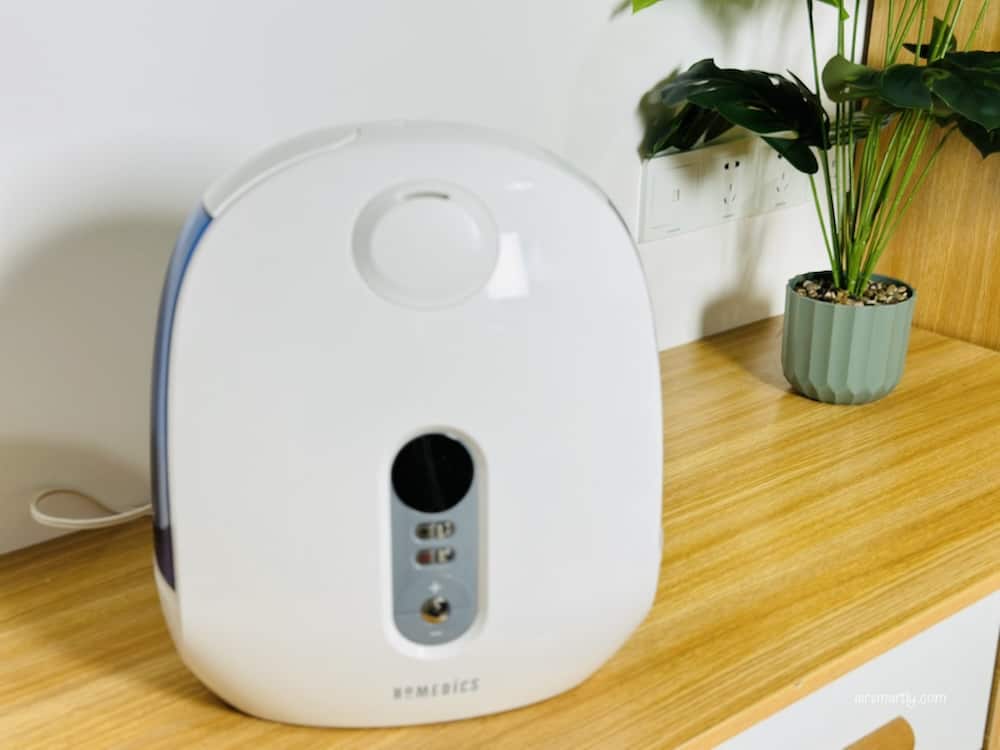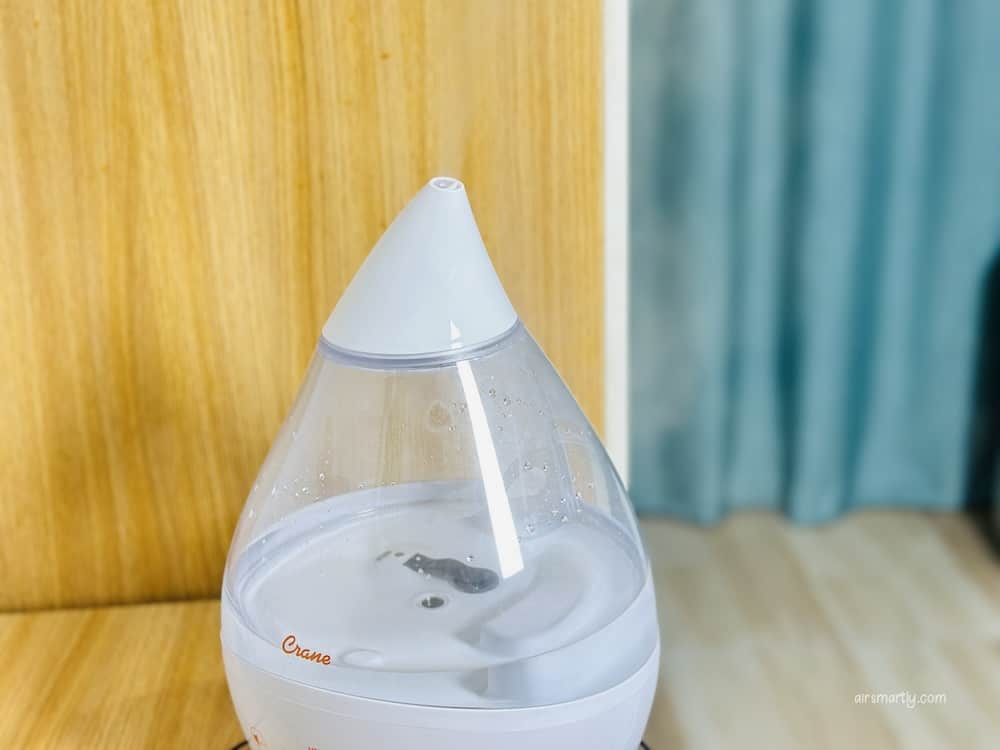Winter months can mean agony for many of us. This is not only because of the low temperature but also the low humidity. When our heating system is on, it will suck up the moisture further.
Air dry can wreak havoc on our bodies and our house, but it is essential to know how to tell if the air is dry before taking any measures.
Luckily, there is an array of ways for you to identify the air dryness, and combating dry air is very easy. By reading this post, you will have a firm understanding of this subject.
Symptoms of dry air
When you stay or sleep in a dry room for a long time, some symptoms will start to show up, and you may also notice some signs on other items.
1. Increased static electricity

Air is an insulator, so the electrons are hard to travel through it, but water is conductive, which can help ease the situation. That’s why you feel fewer ZAPs of static electricity in summer, given that summer is usually wetter.
When the air is dry, more electrons will accumulate on your body, and when you touch any conductive surface, these electrons will escape at once, causing tiny shocks to you.
So when you experience ZAP in a room, it is a sign that the indoor air is too dry.
2. Dry skin
When there is less water in the air, your skin is likely to dry out.
If you feel your skin is itchy and tighter than usual or even see peeling or flakes on the nose and cheek, it means that the humidity level is too low and your skin lacks water to function well.
3. Chapped lips
Similar to dry skin, the moisture in the mouth will lose in a less humid environment. That’s why you see girls can’t live without a lip balm in the winter.
Note that sun exposure also contributes to this situation, so make your own judgment by combining other symptoms on this list.
4. Sore throat
If you are one of those who wake up with a sore throat, the indoor air is likely too dry for you. Airborne irritants like to survive and thrive in a low humidity environment, leading to discomfort in the throat.
5. Feel cold
Moisture helps to keep your body warm and decreases the speed of evaporation. When the air is dry, you will feel colder even if the temperature is unchanged.
To keep your body at a comfortable temperature, you have to change the thermostat settings on your HVAC system, increasing your energy consumption.
6. Breathing difficulties
Inhaling dry air can dry out sinuses, making you feel hard to breathe. The dry mucus membrane can’t protect your body as usual, so bacteria and viruses can get into your body and cause infections and inflammations easier.
7. Nosebleeding
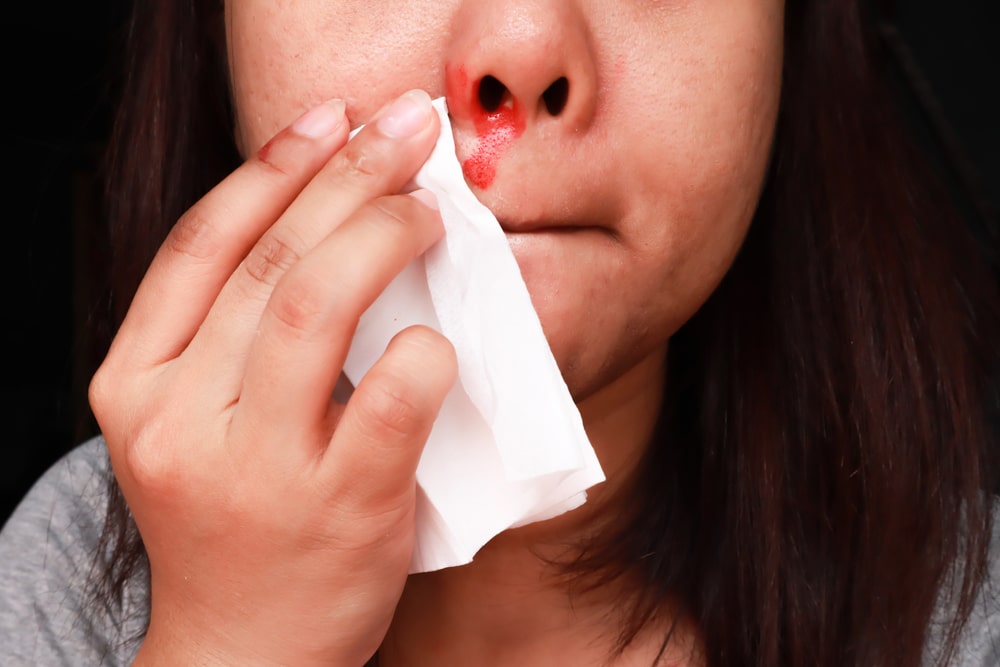
Nosebleeding can happen suddenly in the dry and cold winter season. It often boils down to the dryness of your nasal mucus membrane.
When the skin in the nasal is too dry, it will crack and break, resulting in bleeding or other ailments.
8. Feel stressed
A study has shown that office workers who spend most of their time in a place with low indoor humidity are 25 % more stressed than people in a 30%-60% RH environment.
Dry air may also lead to poorer sleep quality, which will increase the stress level even further.
9. Cracking wood
Wood furniture is sensitive to the indoor humidity level. It will swell and warp when the humidity is too high and crack and shrink when the humidity is too low.
Planks stay together at a proper humidity level, but the gaps will grow when the air sucks up the moisture particles and each plank shrinks. If furniture exposes to dry air for too long, permanent damage will appear.
Side effects of dry air
Some people don’t care much despite the fact that they can tell the air is dry. In fact, dry air may cause more serious adverse effects than you expected.
Susceptible to illness
As I mentioned earlier, many microorganisms love to thrive in dry air. That’s why you often see flu spreading in winter.
In addition to that, our body is vulnerable to infection and inflammation since the mucus membrane becomes fragile, which can’t be against harmful bacteria and viruses as effective as before.
Increase expense on house repairs
House repairs can be pretty expensive, especially in the US. Many houses and furniture are made of wood. They can be damaged gradually by low humidity that you can’t tell initially until one day, and you have to pay a large bunch of money to repair them.
What’s more important, it can affect the safety of your living space, which is something you want to avoid in the first place.
What is considered dry air?
According to many sources, the best humidity level for our human beings is between 30% to 55%. When the humidity level drops below 30%, the air can be considered dry. In fact, the humidity in some arid areas can be as low as 10%.
Most consumers use a hygrometer to monitor the humidity level, but there are also some other ways to measure the humidity without it.
How to combat dry air at home?
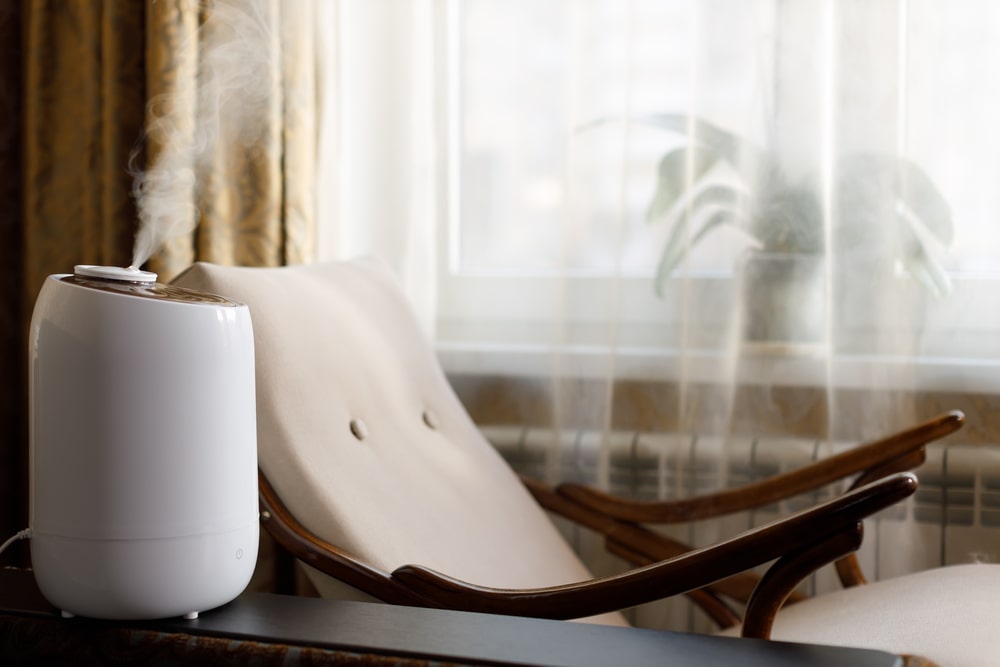
Once you ensure the air is dry, you should take actions to deal with it. Placing some houseplants in the room and boiling water on the stove work, but the most effective way is to use a humidifier.
If you are a bit more budget, you can install a whole-house humidifier that is attached to your HAVC system so the moisture particles can disperse evenly all over the house. Using a console humidifier is also great, but you should avoid over humidifying the room since it can also damage the furniture and yourself.
Conclusion
I summarized 9 symptoms that indicate the air is dry in this post. Whenever you experience dry skin, chapped lips, parched throat, or nosebleeding, the room you live in may be too dry. Sometimes, the reason why you feel stressed is also because of the low indoor humidity level.
You shouldn’t neglect the effect of dry skin because it can make you susceptible to bacteria and mold, causing asthma flares, allergic reactions, or even chronic diseases. It could also damage your furniture and undermine the home structure.
So you should keep an eye out for the humidity level and use a humidifier to regulate the humidity when needed.


